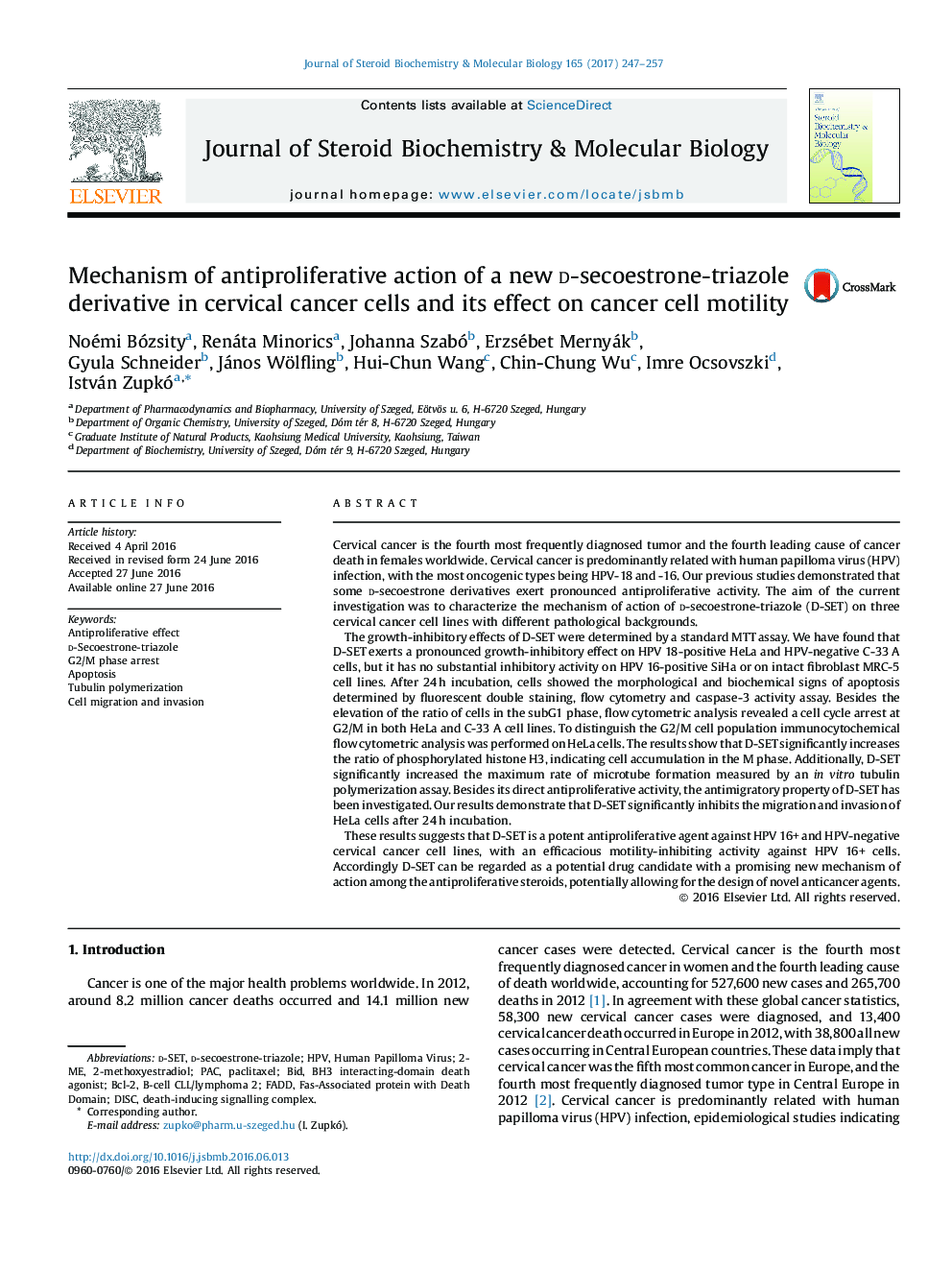| کد مقاله | کد نشریه | سال انتشار | مقاله انگلیسی | نسخه تمام متن |
|---|---|---|---|---|
| 5513137 | 1540982 | 2017 | 11 صفحه PDF | دانلود رایگان |

- d-secoestrone-triazole (D-SET) inhibited the growth of cervical cancer cell lines.
- D-SET induced apoptosis on HeLa and C-33 A cells, with no action on SiHa cells.
- D-SET caused M phase blockade on HeLa cells and disrupted tubulin polymerization.
- D-SET inhibited migration and invasion of HeLa cells concentration dependently.
Cervical cancer is the fourth most frequently diagnosed tumor and the fourth leading cause of cancer death in females worldwide. Cervical cancer is predominantly related with human papilloma virus (HPV) infection, with the most oncogenic types being HPV-18 and -16. Our previous studies demonstrated that some d-secoestrone derivatives exert pronounced antiproliferative activity. The aim of the current investigation was to characterize the mechanism of action of d-secoestrone-triazole (D-SET) on three cervical cancer cell lines with different pathological backgrounds.The growth-inhibitory effects of D-SET were determined by a standard MTT assay. We have found that D-SET exerts a pronounced growth-inhibitory effect on HPV 18-positive HeLa and HPV-negative C-33 A cells, but it has no substantial inhibitory activity on HPV 16-positive SiHa or on intact fibroblast MRC-5 cell lines. After 24Â h incubation, cells showed the morphological and biochemical signs of apoptosis determined by fluorescent double staining, flow cytometry and caspase-3 activity assay. Besides the elevation of the ratio of cells in the subG1 phase, flow cytometric analysis revealed a cell cycle arrest at G2/M in both HeLa and C-33 A cell lines. To distinguish the G2/M cell population immunocytochemical flow cytometric analysis was performed on HeLa cells. The results show that D-SET significantly increases the ratio of phosphorylated histone H3, indicating cell accumulation in the M phase. Additionally, D-SET significantly increased the maximum rate of microtube formation measured by an in vitro tubulin polymerization assay. Besides its direct antiproliferative activity, the antimigratory property of D-SET has been investigated. Our results demonstrate that D-SET significantly inhibits the migration and invasion of HeLa cells after 24Â h incubation.These results suggests that D-SET is a potent antiproliferative agent against HPV 16+ and HPV-negative cervical cancer cell lines, with an efficacious motility-inhibiting activity against HPV 16+ cells. Accordingly D-SET can be regarded as a potential drug candidate with a promising new mechanism of action among the antiproliferative steroids, potentially allowing for the design of novel anticancer agents.
Journal: The Journal of Steroid Biochemistry and Molecular Biology - Volume 165, Part B, January 2017, Pages 247-257